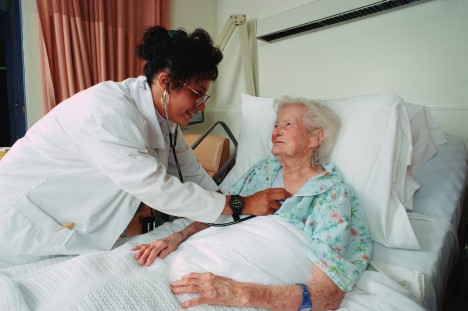
According to Time Magazine, American’s (the vast majority of whom I assume are in the mature market) are traveling abroad in greater numbers for medical care.
“The medical tourism industry has experienced massive growth over the past decade. Experts in the field say as many as 150,000 U.S. citizens underwent medical treatment abroad in 2006 — the majority in Asia and Latin America. That number grew to an estimated 750,000 in 2007 and could reach as high as 6 million by 2010. Patients are packing suitcases and boarding planes for everything from face lifts to heart bypasses to fertility treatments.
In recent years, companies all over the U.S. have sprung up to guide Americans through the insurance and logistical hurdles of surgery abroad, including many in U.S. border states affiliated with medical facilities in Mexico. The physician-managed MedToGo in Tempe, Arizona, founded in 2000, says its clients save “up to 75% on medical care” by getting it in Mexico. The Christus Muguerza hospital system — located in Mexico, but run by U.S.-based Christian hospital group since 2001 — includes a scrolling text box on its web site informing visitors how “very close to you” its Mexican facilities are. (“from Houston 1 hr 37 mins!” “from Chicago 3hrs 15 mins!”) Meanwhile, New Zealand is trumpeting its expertise in hip and knee replacements and South Korea is enticing medical travelers with high-end non-medical amenities like golf.
For those who wrinkle their noses at the thought of going under the knife in a foreign, let alone still-developing, country, the American Medical Association introduced a set of guidelines in June for medical tourism. The AMA advocates that insurance companies, employers and others involved in the medical tourism field provide proper follow-up care, tell patients of their rights and legal recourse, use only accredited facilities, and inform patients of “the potential risks of combining surgical procedures with long flights and vacation activities,” among other recommendations. Joint Commission International, a non-profit that certifies the safety and record of hospitals, has accredited some 200 foreign medical facilities, many in Spain, Brazil, Saudi Arabia, Turkey and the United Arab Emirates.”
Source: Time Magazine
Filed under: Uncategorized | Tagged: abroad, AMA, American Medical Association, Arizona, Asia, Brazil, Christian, fertility treatments, follow-up care, foreign medical facilities, golf, heart bypass, high end amenities, hip replacement, hospital group, insurance, insurance companies, Joint Commission International, knee replacement, Latin America, medical facilities, medical tourism, medical travelers, medical treatment, MedToGo, mexico, New Zealand, patients, physician-managed, Saudi Arabia, South Korea, Spain, Tempe, The Christus Muguerza hospital system, Time Magazine, Turkey, U.S. citizens, United Arab Emirates | Leave a comment »








You must be logged in to post a comment.